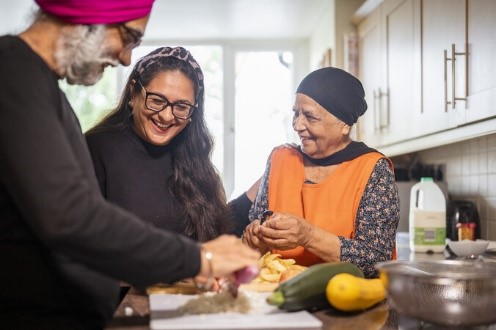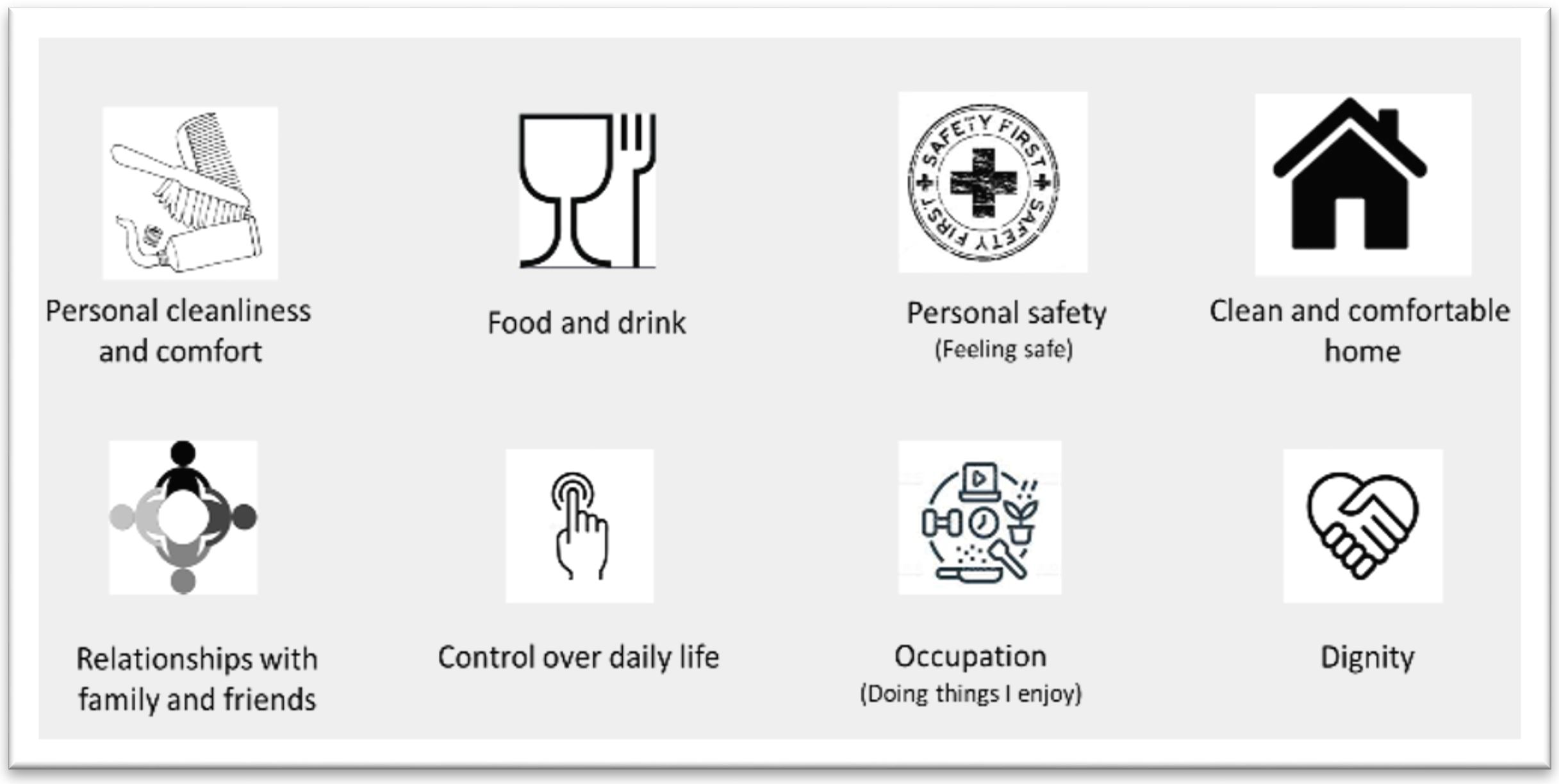October 10, 2022
 By Stacey Rand, Senior Research Fellow at PSSRU
By Stacey Rand, Senior Research Fellow at PSSRU
In the UK, there are an around 1.3 million undernourished older adults. There are various reasons why some older people are at higher risk of undernourishment than others – for example, social isolation, health issues, limited mobility or cognitive impairment, accessibility of shops and food outlets, transport and limited household income.
But maintaining a healthy, nutritious and sufficient diet and hydration are not the only needs older people have when it comes to food and drink. Food and drink also have personal, social and cultural importance. We may particularly enjoy or prefer certain types of food or drink. There may also be some foods or drinks that we choose not to consume, due to ethical, religious or cultural reasons (e.g. ethical vegetarianism/veganism) – or for our health (e.g. due to allergies or to manage long-term conditions, like diabetes).

Food and drink can also play a role in how we celebrate or mark social events (e.g. birthdays or religious or cultural festivals). Sharing in food and drink, whether in its preparation or consumption, with others can also be an important way of connecting with others or maintaining friendships and personal relationships. How we relate to food and drink can also affect how we think about ourselves.
Some of these aspects of food and drink can also become difficult, alongside maintaining a healthy, nutritious diet and hydration, for some older adults. Community-based social care services, which includes home care, day centres or activities, play a vital role in supporting older people to live independently and well. This includes supporting their needs related to food and drink. However, there are challenges to ensuring older people’s needs are met, for example, the short length of home care visits, underfunding and workforce issues.
Most of the research about older people’s food and drink-related needs focuses on care homes. Less is known about people living at home, who use home care or other community services. A new project led by the PSSRU, University of Kent and funded by the NIHR School for Social Care Research will address this gap.
First, we will scope the existing literature to identify what is already known about the food and drink-related needs of older adults, who live at home and use community-based care services. We will especially focus on the evidence relating to ways of delivering care or combining services (e.g. home care with meals services). This scoping review will focus on published work available from searchable databases. However, we will also present and discuss the findings to our project advisory group and also the Applied Research Collaboration Kent Surrey Sussex (ARC KSS) Community of Experience (CofE) for Homecare, to identify any other relevant literature.
Second, we will analyse data from a national survey of people using social care services in England, the Adult Social Care Survey (ASCS), to understand the extent of food and drink-related needs. This survey has collected information from people who use publicly-funded social care services, since 2011. It includes the Adult Social Care Outcomes Toolkit (ASCOT) measure, which includes food and drink-related needs/quality of life outcomes.
Domains of social care needs/outcomes in ASCOT, including Food and Drink

We will explore the ASCS data over the last 10 years to identify trends over time and/or between local authorities or regions. The data will also be analysed to understand the factors that are related to higher risk of unmet needs. This will include, for example, housing design and suitability, ethnicity, local environment and underlying health needs.
The findings from the literature review and data analysis will be considered to identify key messages for policy-makers, managers, care providers and commissioners. We will work with professionals and user/carer advisors, to develop a brief guide to our findings and recommendations.
If you are interested in the project, its findings or being involved in the advisory group or ARC KSS CoE, please contact us.
Project team: Dr Stacey Rand (PI, PSSRU), Dr Lavinia Bertini (Brighton and Sussex Medical School), Alan Dargan (PI, PSSRU), Professor Monique Raats (University of Surrey), Becky Sharp (ARK KSS), Della Ogunleye (research advisor/PPI), Joy Fletcher (research advisor/PPI), Karin Webb (research advisor/PPI)
Timeline: September 2022 to February 2024
Funder: This blog reports independent research funded by the National Institute for Health and Care Research School for Social Care Research (NIHR SSCR). The views expressed are those of the authors and not necessarily those of the National Institute for Health and Care Research or the Department of Health and Social Care.